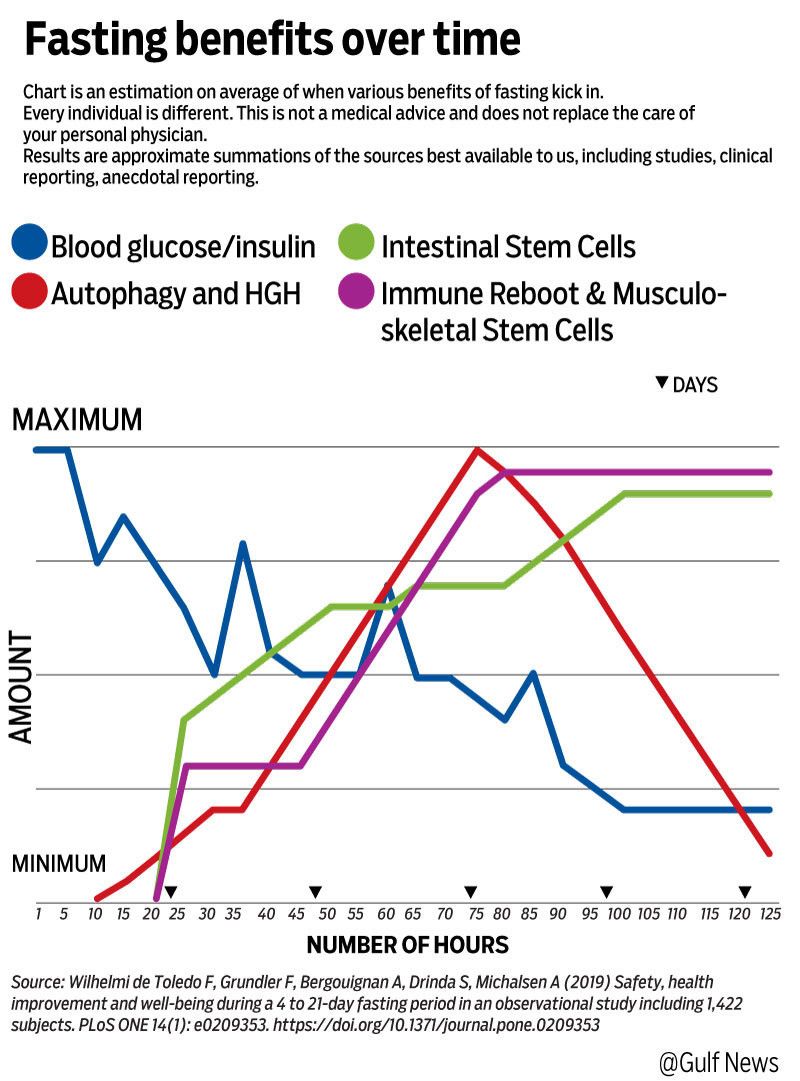


People follow different schedules for intermittent fasting. Immune Cell RejuvenationĪfter 72 hours of fasting, your body starts to break down old immune cells and generate new cells, keeping you healthy and safe. This helps in activating autophagy, reducing inflammation, protecting you from chronic diseases, and making you more insulin-sensitive. Insulin ReductionĪfter 54 hours of fasting, your insulin level drops to its lowest. The growth hormone is important in keeping the muscle mass lean and reducing the accumulation of fat tissue. This is because both the ketones and Ghrelin, the hunger hormone, push the secretion of the growth hormone. Growth HormoneĪfter 48 hours of fasting, your growth hormone increases by 5 times. Top Tip: By fasting and starting to deplete your glucose stores, you activate the AMPK signaling pathway and hinder mTOR activity, activating autophagy. In fact, older people are more prone to such neurodegenerative diseases because our autophagy decreases as we grow. This stage usually starts after 24 hours of fasting, though exercising can help initiate it faster.Īutophagy is quite an important process that boosts your immune system. Some of such proteins are known to cause some neurodegenerative diseases like Alzheimer’s. AutophagyĪutophagy is the stage of fasting where the cellular components like misfolded proteins are degraded and recycled. In this stage, your liver also uses some of these fats to produce ketones to replace glucose as sources of energy for your brain along with other organs and muscles.Īs the ketones level increase in your blood, they can act like hormones in signaling for your body to enhance your stress-busting pathways. In this stage, your body begins to break down, burning fats. Ketosis is the metabolic state you enter after 12 hours of fasting. Intermittent fasting is actually a process that organizes your metabolism in five stages: Ketosis & Heavy Ketosis What Are the Stages of Intermittent Fasting? Thus, intermittent fasting is a way of scheduling your meals. You voluntarily refrain from eating for a specific period in the day, then, start eating until it’s time to fast again. This, however, is wrong.Īuthor Note: While intermittent fasting can help with weight loss, it’s more of an eating pattern than a diet. Many people think that intermittent fasting is a diet that would help them lose weight. It’s best to really grasp the concept of intermittent fasting in order to know why some people think that a cup of coffee would break it. In this article, we’ll cover exactly why it doesn’t as well as the best ways to ice coffee and fasting to your advantage. Once you add something with calories, you will have broken your fast.īut let’s get into the rationale as to why coffee doesn’t break a fast. The issue is that almost everyone adds something to their iced coffee that has calories. If you only drink iced coffee with no sugar or cream added to it you will not break your fast. The short answer is no, iced coffee does not break a fast. So, let’s try to make things clearer! One of the frequent questions people ask when considering intermittent fasting is, “Does iced coffee break a fast?” However, some people are still a bit confused about how it works. One of the common health trends nowadays is intermittent fasting.


 0 kommentar(er)
0 kommentar(er)
